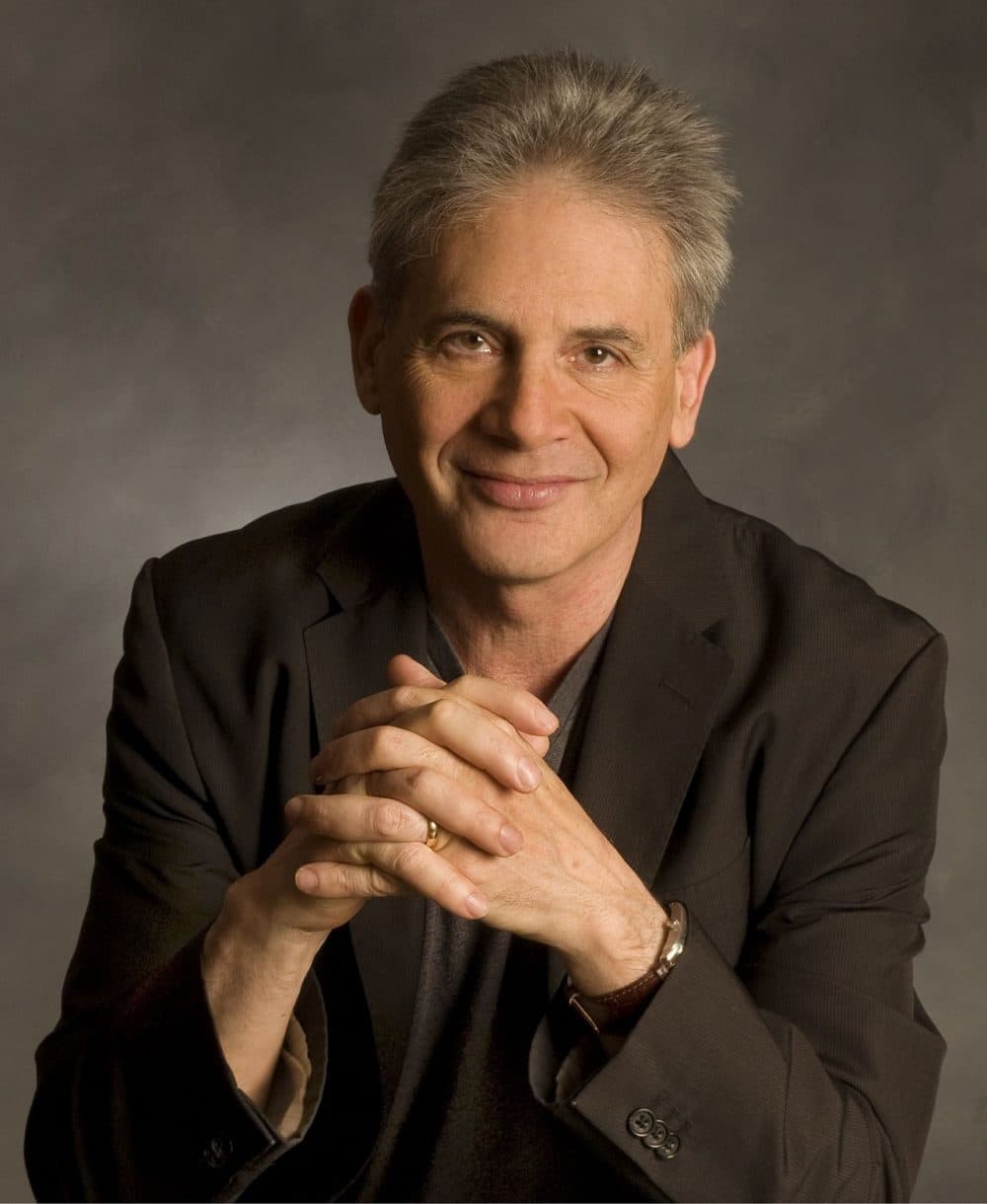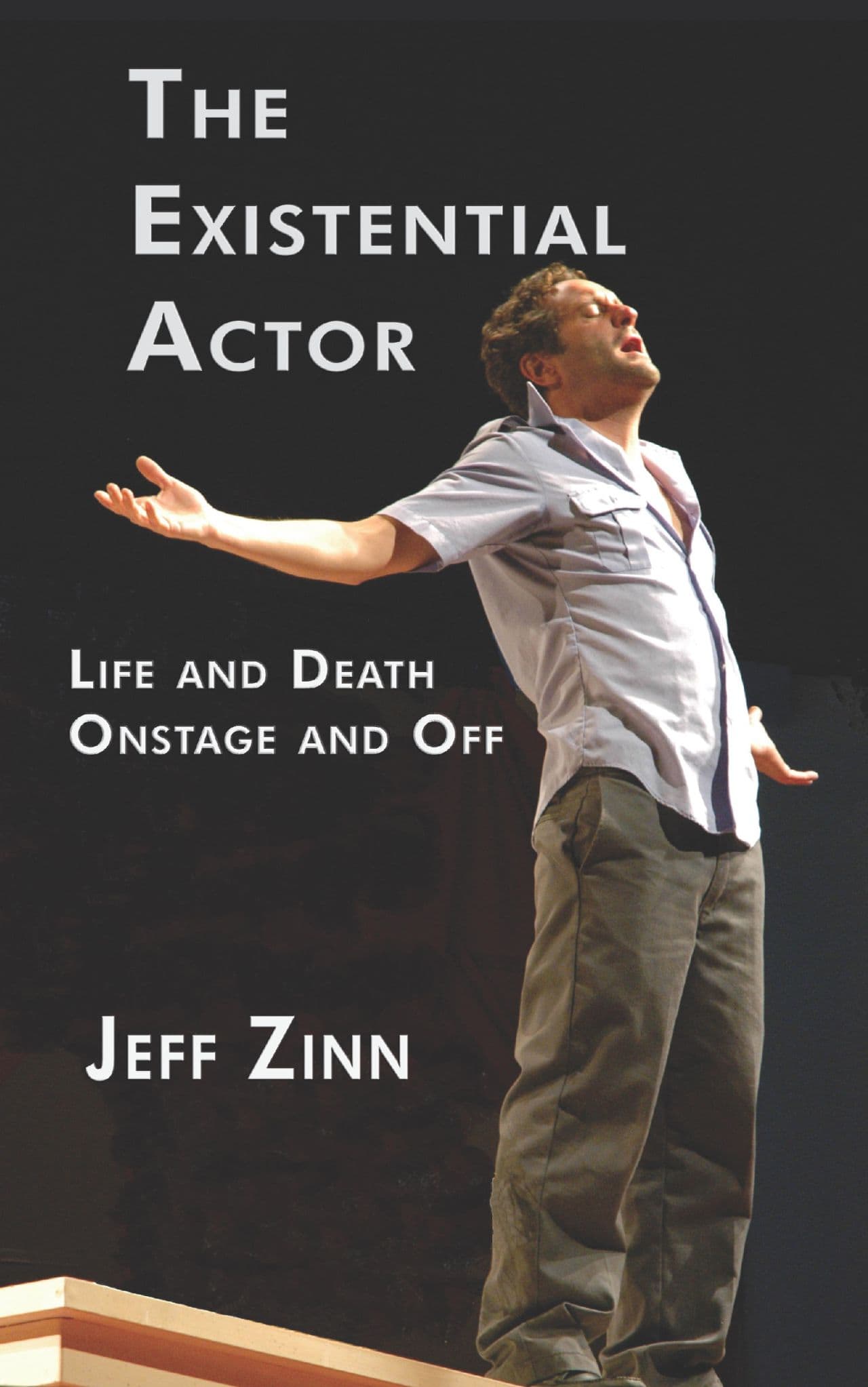Advertisement
Jeff Zinn On The Book That Took Him 20 Years To Write

It’s been 20 years in the making, but Jeff Zinn — actor of both on and off-Broadway and former artistic director of the Wellfleet Harbor Actors Theater on Cape Cod — has finally written the book he’s always wanted to.
“The Existential Actor,” released earlier this month, is a taut survey of the craft of acting: where it came from, where it’s going and how it can be improved. Zinn draws on historical text, psychology, philosophy and his own personal experiences to set forth his theory that self-constructed identity exists as a shield against the awareness of our own mortality, and if actors can tap into this process of identity creation, they can surrender to authentic emotion on stage.
Zinn, who lives on the Cape, began his career as an actor, appearing early on in an off-Broadway production of David Mamet's “Sexual Perversity in Chicago.” He moved on to directing, and in 1988 became the artistic director of the Wellfleet Harbor Actors Theater, then in its very early stages. Zinn saw the organization through a period of incredible growth — so big, in fact, the once scrappy community theater opened a second year-round facility in 2007, to the tune of $6.8 million. Zinn and the board of directors then clashed over the theater's direction, as some — worried about filling the seats — urged a move more into the mainstream. Amid the tension, Zinn resigned in 2011 and now freelance directs, teaches and writes.
It was around 1990, while Zinn was studying at the American Repertory Theater Institute at Harvard, that the idea for a book began brewing inside him.
“I remember feeling like I just really needed to write something,” Zinn recalled. “But I had never written a book before. It took me this long to figure out the building blocks so it would all make sense to people.”
Over the years, the book’s larger concepts revealed themselves to him. It’s part of why “The Existential Actor” feels so fully fleshed out. No proverbial stones are left unturned. Zinn tackles nearly the entire history of acting technique, beginning with the Greeks and ending somewhere around prestige TV dramas. Moreover, Zinn explores the psychology of acting, which takes him — historically speaking — even farther back in time.
Here is a wildly incomplete list of subjects Zinn manages to touch upon: Aristotle, Diderot, Delsarte, Stanislavski, Brecht, Anne Bogart, Jean Paul Sartre, Oscar Wilde, Susan Sontag, Woody Allen, Louis C.K., Cindy Sherman, Tina Fey, Meryl Streep, Walter White and Don Draper.
Linking them all is Zinn's theory that successful performances — on stage, on camera and in life — are ones that tap into our inherent fear of death. More precisely, this fear is actually angst, first coined by Kierkegaard to describe the mix of ecstasy and anxiety brought on by simply being alive. To minimize it, we imbue meaning (i.e. immortality) into our own narratives and identities.
Zinn puts it this way in the book: "That we will not die is the vital lie that all cultures construct for themselves. It’s at the center of huge edifices of belief and worldview that we inherit and in which we participate all our lives."
Or, as Joan Didion once wrote: "We tell ourselves stories in order to live."

With this in mind, "The Existential Actor" examines how best to understand this angst (and how we combat it) and translate it to the stage. Zinn conveniently breaks down his own steps to successful performance into four elements: shape (internal and external identity), action (what we do with our identities), transaction (human interactions) and surrender (authentic emotion).
Zinn calls these elements the psychological mechanisms of character creation. By using them, actors can create more authentic performances; and by understanding them, audience members can enjoy a more meaningful viewing experience.
Early on in the book, Zinn writes, “In this brief history of systems and approaches I have tried to maintain the elevation and speed of a helicopter — not too low, not too fast — so that we might gather enough detail to make sense of it, but also stay above the treetops, so to speak, in order to appreciate the landscape as a whole.”
It’s important to note “The Existential Actor” is not intended solely for actors. Anyone who has a passion for theater — participating in it, or watching it — will enjoy the book’s sweeping nature. Zinn called it a “dramaturgical lens” through which to view the practice of theater.
“If you drew concentric circles, actors would be at the center of that target,” Zinn said of his book’s audience. “And in the widest circle it would be anyone who loves theater.”
Considering the book’s scope, it’s hard not to be impressed with the research undertaken. Zinn joked, at one point, feeling overwhelmed and intimidated by the psychology section, he wondered if he should go back to graduate school.
“[The research] really could have been endless,” Zinn said. “I had to exert a fair amount of discipline to ensure this wouldn’t become an ‘endless dissertation.’”
Now is a good time to mention Zinn is the son of late-great historian and social critic Howard Zinn (known most especially for “A People’s History of the United States,” which is exactly what it sounds like). So, perhaps, somewhere in his genes Zinn inherited a gift for distilling massively complex concepts into readable pages.
“He was the one who encouraged me to make this for a more general audience,” Zinn said. “And, I mean, I watched him write 20 books in the course of his lifetime and mine. His dedication and work ethic was hugely inspiring.”
Now that his “endless dissertation” is complete and available for purchase, what’s next for Zinn?
“I’ll be putting my money where my mouth is,” he said. “Acting, directing and teaching.”
Matt Mullen studies at Emerson College and is an editorial assistant at Ploughshares, the literary journal.